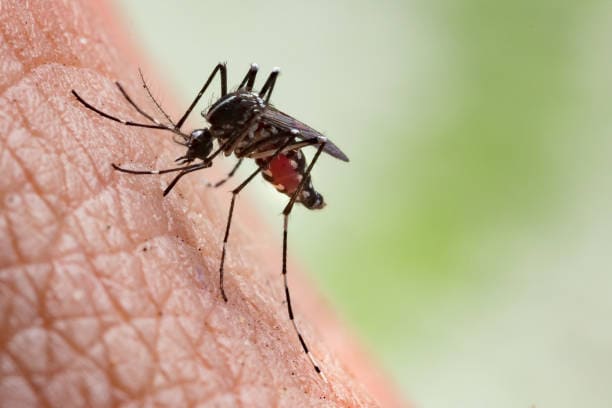
Chikungunya: the mosquito that can ruin your holiday
You may have heard about it before: chikungunya. A mouthful, but mostly a virus you would rather not catch. With travel and the spread of certain mosquito species, it can pop up almost anywhere these days. Let's see what exactly it is, how you catch it and most importantly: how to protect against it.
What is chikungunya?
Chikungunya is an infectious disease caused by the chikungunya virus, belonging to the group Alphaviruses. The virus is found in more than 100 countries, including large parts of Africa, Asia, Central and South America and the Caribbean. Even in Europe, there have been occasional outbreaks. Especially in areas with active outbreaks, the risk of becoming infected is higher.
How do you get infected?
The culprits are mainly Aedes mosquitoes, such as the tiger mosquito and the yellow fever mosquito. These small but extremely active insects mainly sting during the day and transmit the virus from person to person through their bite. Direct human-to-human infection is almost non-existent, except very rarely from mother to child around childbirth.
How do I prevent chikungunya?
- Wear covering clothes
- Sleep under a mosquito net.
- Use an insect repellent with DEET (is a substance that confuses mosquitoes' scent sensors).
- A highly effective vaccine has recently become available in the Netherlands. Get vaccinated in time to prevent chikungunya.
Who is the chikungunya vaccination for?
According to current guidelines, vaccination is especially recommended for:
- Travellers going for an extended period to areas where there is a Chikungunya outbreak. There is an outbreak in the following countries: Madagascar, Mayotte and Reunion (French overseas territory).
- People who have difficulty coping with serious illness, such as those with certain chronic conditions (e.g. cardiovascular disease).
- Aid workers or expatriates working or living in high-risk areas for long periods.
For short holidays in areas without an outbreak, it is usually not advised as standard, unless there are special risk factors.
Note: the chikungunya vaccine is only available for children from 12 years to an age of 64 years.
What symptoms can you expect if you do not vaccinate?
- High fever
- Severe joint pain (especially in hands, wrists, ankles and feet)
- Muscle aches and headaches
- Nausea
- Skin rash
- Sometimes: inflamed eyes
Most people feel better after one to three weeks. Yet in some patients, joint pain can persist for months or even years.
Want to know more about the chikungunya vaccine?
Then take a look at: https://vaccinatiepunt.nl/vaccinaties/chikungunya/
Want to get vaccinated against the chikungunya virus?
Then make an appointment soon at: https://vaccinatiepunt.nl/afspraak-maken/
Source: LCR & RVIM
